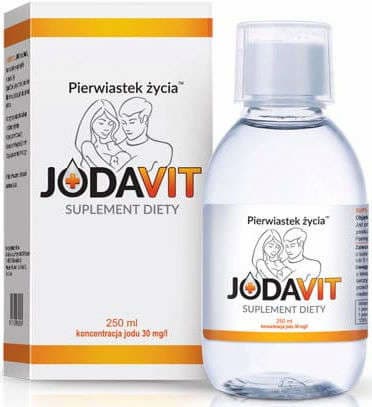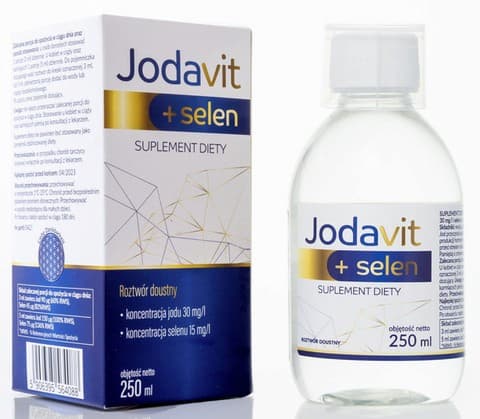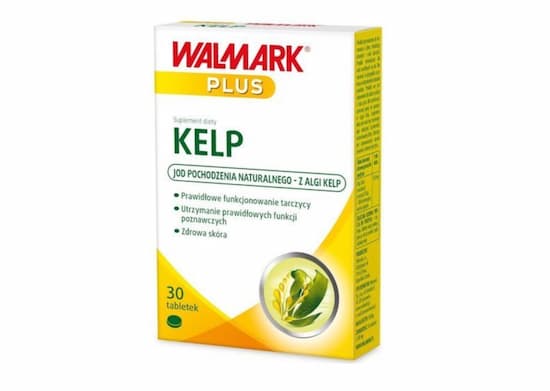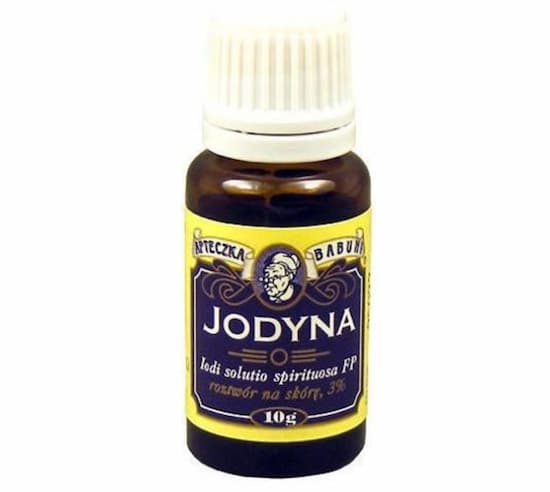Iodine - what it is, how it works, how to dose, what are the symptoms of deficiency
Iodine is a trace mineral responsible for the production of thyroid hormones.


Learn more about our editorial process
.

Learn more about our editorial process
.

Learn more about our editorial process
.

Learn more about our editorial process
.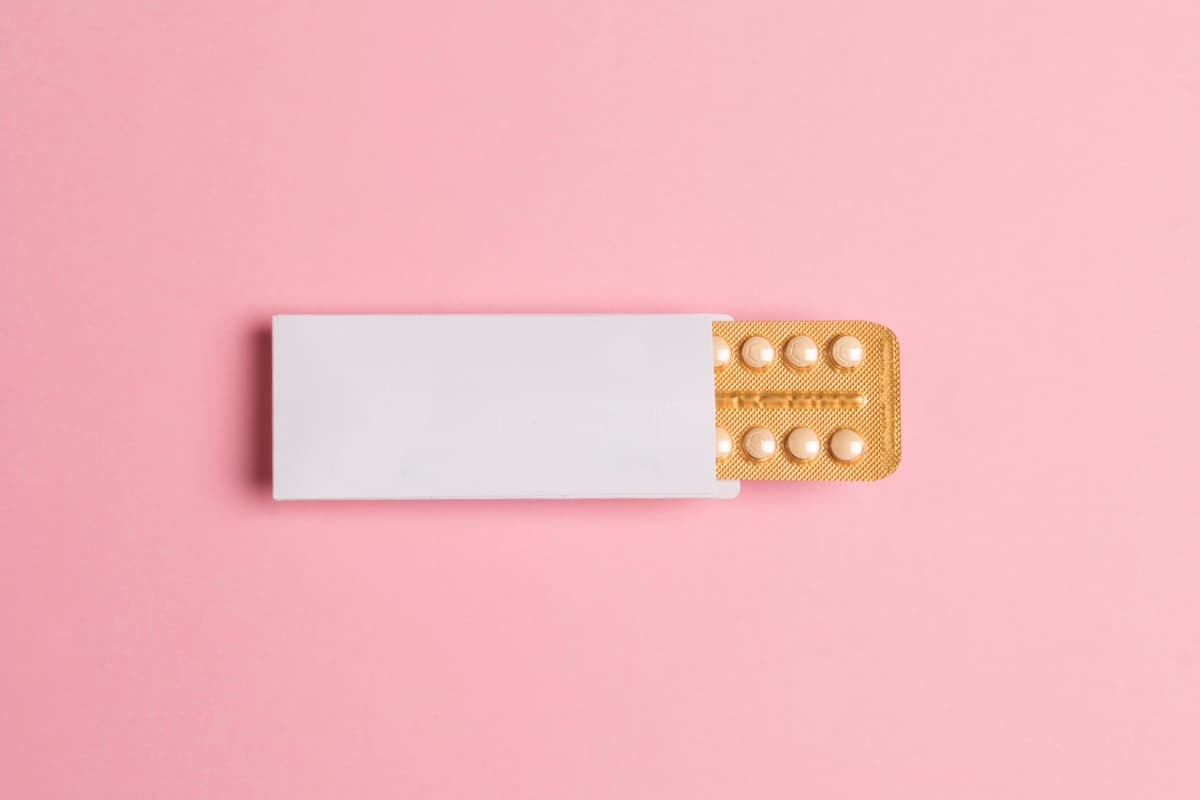
Why you can trust us
Articles on Natu.Care are written based on scientific research, data from government websites and other reliable sources. The texts are written in cooperation with doctors, nutritionists and other health and beauty experts. Articles are reviewed before publication and during significant updates.
.Learn more about our editorial process
.Information about advertisements
Content on Natu.Care may contain links to products from the sale of which we may receive a commission. When creating content, we adhere to high editorial standards and take care to be objective about the products discussed. The presence of affiliate links is not dictated by our partners, and we select the products we review ourselves completely independently.
.Learn more about our terms and Conditions
.Iodine is one of the most important micronutrients in our body. It is essential for the production of thyroid hormones, which regulates numerous processes in the human body.
Imagine walking along the shore of a rolling sea on an autumn or winter day. These circumstances are wonderful not only for the eyes and ears. During such walks, we inhale the air, which is saturated with iodine - a valuable element for the health of our body.
It is also a great way to enjoy the sea.
Not everyone has the opportunity to obtain iodine from the sea air, so in this article you will learn more about foods rich in this mineral. You will also learn about the properties of iodine, correct dosage and symptoms of deficiency and excess of this ingredient. I invite you to read on.
From this article you will learn:
.- What iodine is and where it got its name .
- How iodine affects how our bodies work .
- How much iodine we need .
- In which products you will find the most iodine .
- What are the symptoms of iodine deficiency and excess .
- Why iodine is important for health during pregnancy .
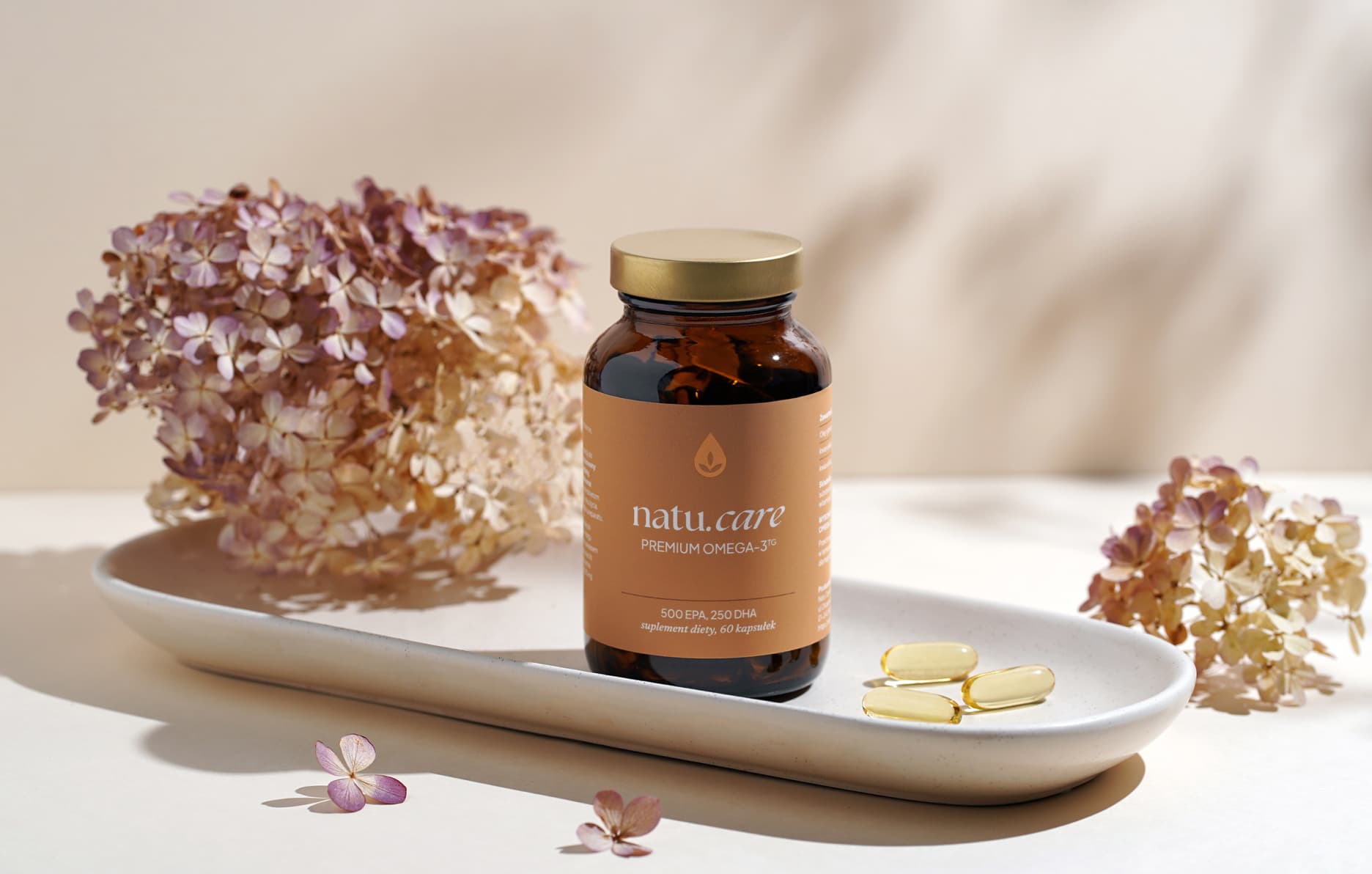
Sprawdź, za co pokochały go tysiące klientek Natu.Care Premium Omega-3ᵀᴳ -15% z kodem BLOG15
Natu.Care Omega-3ᵀᴳ Premium
Natu.Care Omega-3ᵀᴳ Premium dla zdrowia serca, mózgu i odporności. Najlepsza przyswajalność. Optymalna dawka 750 mg. Przebadana przez niezależne laboratorium.
Zobacz więcej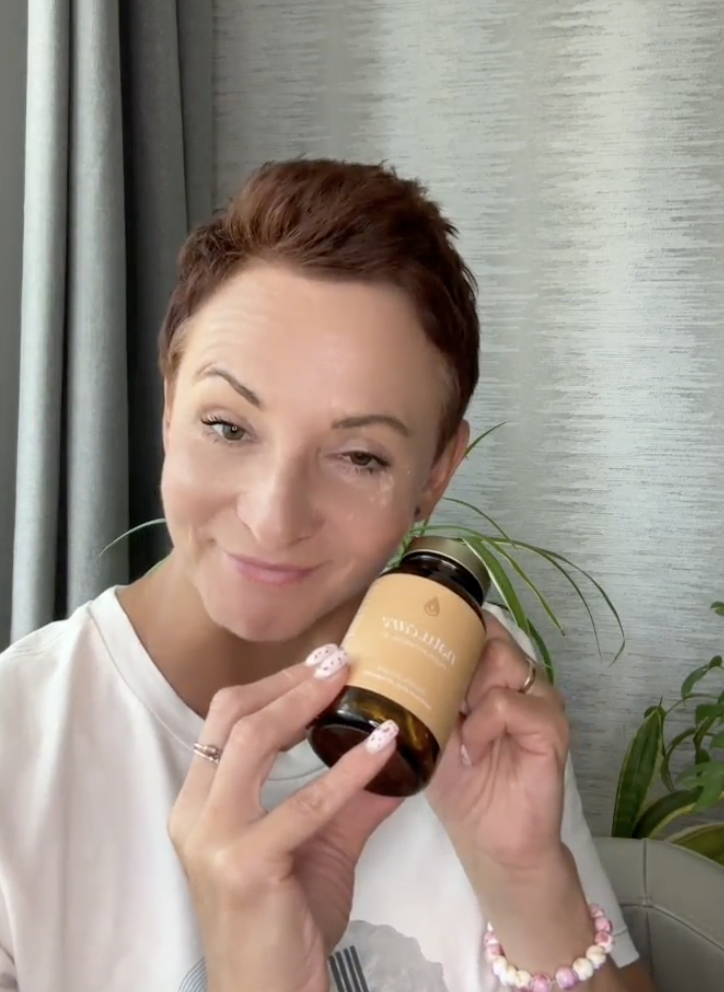
Produkt ma super skład, transparentną etykietę i co dla mnie jest ważne – małe kapsułki do połknięcia. Nie ma też nieprzyjemnego efektu odbijania rybą, który miałam spożywając inne produkty. Widzę znaczną poprawę odporności. Polecam!@Kasia P.
See also:
- Zinc tablets [properties and dosage + ranking]
- Magnesium [properties + deficiency symptoms + best sources] .
- Best magnesium [ranking + expert opinion] .
- Potassium [deficiency + standard + what it's in]
- Zinc [properties + deficiency + excess] .
- Chromium [properties + use + supplementation] .
- Iron [properties + sources + deficiency] .
- Selenium [properties + dosage + supplementation] .
- MSM or organic sulfur [what it is and properties + dosage]
- Copper [properties, deficiency, excess] .
What is iodine?
.
Iodine is a trace mineral essential to the body's health. We cannot produce it - iodine must be taken with diet or supplements. This element is necessary for the production of thyroid hormones (thyroxine and triiodothyronine). These are responsible for, among other things, the formation of proteins and the regulation of metabolismand.
One of the most important proteins in the human body is collagen.
.You can learn more about it from this article: Collagen: what it is, properties, dosage, uses.
The thyroid gland is a small and might seem inconspicuous gland. Nothing could be further from the truth! Its proper function is invaluable for the functioning of our body..
 .
.
.
Origin of the name iodine
.
Iodine was discovered in 1811 by the French chemist Bernard Courtois. Despite this, the name iodine, which we still use today, was not given to it until 2 years later. In creating it, the ancient Greek word "ioeides" was used, which means "purple"and.
Preparations with iodine
Jodavit natu.care
Jodavit + Selen natu.care
Iodine - properties
.
Iodine influences numerous processes in the body. What are its most valuable properties?
Promotes the function of the thyroid gland
.
The thyroid gland regulates the production of hormones that affect normal heart function or metabolism. Iodine is crucial to the health of this organ. The thyroid gland uses iodine resources to produce hormones. Lack of adequate concentrations of this element can lead to thyroid problems such as hypothyroidismand.
Promotes neurological development of the foetus during pregnancy
.
Iodine is essential for normal pregnancy development - it supports neurological brain development in the fetus. Studies suggest, that children whose mothers were iodine deficient during pregnancy were diagnosed with intellectual delaysand.
Folic acid is also crucial for a healthy pregnancy.
Do you need more information about it? Take a look at this article: Folic acid (vitamin B9) - what it is, properties, requirement, deficiency
Accelerates wound healing
.
Iodine can be applied topically to treat infections. The mineral can be helpful in healing shallow wounds. However, iodine should not be applied to cuts in infants. Furthermore, it should be avoided on deep cuts, burns or animal bites - in which case it causes pain and burningand.
.
Iodine in the form of an aqueous or spirit solution can be applied topically to decontaminate skin or abrasions..
 .
.
.
Promotes the treatment of mastopathy
.
Mastopathy is a condition that manifests as lumpiness of the breasts. Research suggests, that dietary supplements containing iodine may reduce lumps in cases of mastopathy. Although, the results are promising, more research is needed to confirm the role of iodine in the treatment of this conditionand.
- .
- Reduces the risk of radiation-induced thyroid cancer. .
- Promotes cognitive function in children. .
- According to the pharmacist, iodine in the form of eye drops, delays the process of cataract formation.
Omeega acids, especially omega-3 are also crucial for the youngest.
Check out these articles:
Iodine requirements
.
Iodine requirements change with age. Find out how much iodine you and your loved ones needand.
.
|
Age . |
Daily iodine requirement* . |
|
0-6 months |
110 mg |
|
7-11 months |
130 mg |
|
1-6 years |
90 mg |
|
7-9 years |
100 mg |
|
10-12 years |
120 mg |
|
> 13 years |
150 mg |
*Nutritional standards for the Polish population
.
The iodine requirement increases during pregnancy and lactation. Expectant women should take a total (with diet and supplements) of 220 mg of iodine per day. Breastfeeding ladies, on the other hand, are recommended an even higher dose - 290 mg of iodine each day.
Tolerable upper intake levels of iodine
.
You already know, that iodine is an extremely valuable trace mineral. However, this does not mean that we can supplement it without moderation. What are the healthy limits of iodine intakeand?
.
|
Age . |
Tolerable upper daily intake level for iodine* |
|
0-11 months |
No data available |
|
1-3 years |
200 mg |
|
4-6 years |
250 mg |
|
7-10 years |
300 mg |
|
11-14 years |
450 mg |
|
15-17 years |
500 mg |
|
> 17 years |
600 mg |
*Nutrition standards for the Polish population
.
Iodine-rich foods - sources in the diet
.
Do you take care to ensure that your diet does not lack iodine? If so then great, not many people do. But even if you know what to eat to provide your body with the amount of iodine it needs, it's always worth exploring new kitchen options. Here are the 10 foods richest in iodineand.
.
|
Product . |
Iodine content per 100 grams . |
|
Weed . |
160-298400 mcg* |
|
Iodised salt |
3800 mcg . |
|
Nori algae |
2320 mcg |
|
Radium |
1800-2350 mcg (depending on the season of fishing) |
|
Minute |
1210 mcg . |
|
Dorghum |
185 mcg . |
|
Particles |
119 mcg . |
|
Ostrygi |
109 mcg . |
|
Greek yogurt |
90 mcg . |
|
Hard boiled egg |
52 mcg . |
*The iodine content of seaweed depends on the type of seaweed
.
Fruits rich in iodine - which ones to choose
.
Most fruits do not provide us with much iodine. If you want to provide your body with a lot of this element, choose the product or products from the previous section. Nevertheless, some fruits also contain iodine. Which ones are worth choosing so that we do not run out of this mineral?
Fruits rich in iodine areand:
.
- bananas, .
- strawberries, .
- cantaloupe, .
- cranberries, .
Huge amounts of iodine are also contained in oatmeal. They contain 5-15 mcg of this mineral in every 100 grams. Add a banana, strawberries and a handful of nuts and you have a great breakfast. This meal will provide us with plenty of energy and a large dose of iodine (in addition to other nutrients)..
 .
.
.
Iodine deficiency
.
One in four people among your loved ones are at risk of iodine deficiency. Iodine is a valuable trace element, and a lack of it in the body can result in serious health problemsand.
Causes
.
Iodine deficiency is influenced by certain factors. Which of these most commonly lead to a lack of this mineral in the body?
.
Causesof iodine deficiencyand:
- unbalanced diet, .
- pregnancy, .
- breastfeeding period, .
- living in regions far from the sea and areas where the soil is poor in iodine,
- being in a region where the soil is poor in iodine, .
- young age (iodine deficiency often affects children). .
I myself had the opportunity a few years ago to live by the sea for 9 months. I felt first-hand the benefit of the "free" iodine in the air, as well as feeling the lack of it, after moving to the south of Poland.
 .
.
.
Symptoms
.
Iodine deficiency leads to unpleasant and, in the long term, even dangerous symptoms. Which ones should arouse our concern?"
Symptomsof iodine deficiencyand:
- fatigue, .
- swelling of the neck (thyroid goiter), .
- unexplained weight gain, .
- hair loss, .
- dry and rough skin, .
- cognitive dysfunction, .
- hoarseness and dry mouth, .
- abundant or irregular menstrual periods, .
- changes in heart rate, .
- feeling of cold, .
Note!
.If you notice the above symptoms in yourself, see your doctor. A specialist will determine whether you are suffering from an iodine deficiency and - if necessary - recommend sensible supplementation.
Effects
.
Unmedicated iodine deficiency can lead to hypothyroidism. This is a dangerous condition through which the thyroid gland is unable to produce adequate amounts of hormones. Hypothyroidism may not produce symptoms in the early stages, but over time it becomes very dangerousand.
Effectsof untreated hypothyroidism :
.
- obesity, .
- joint pain, .
- infertility, .
- heart diseases, .
Iodine excess
.
What's too much is not healthy. If you lead to an excess of iodine, your health will also be affected
.
Causes
.
An excess of iodine rarely occurs. Nevertheless, it is worth knowing what can lead to it.
Causes of excessiodineand:
- excessive supplementation, .
- inappropriate diet (overfilled with iodine-rich products), .
- too frequent radiological examinations, .
Symptoms
.
If you are taking high doses of iodine and something bad starts to happen to your body, there is a good chance that you are experiencing the first symptoms of excess. When should the red light go on for you?"
Symptomsof iodine excessand:
- nausea, .
- vomiting, .
- diarrhoea, .
- delirium (mental confusion), .
- stupor, .
If you experience any of these symptoms - stop taking iodine immediately. If the symptoms persist, see your doctor.
See your doctor.
Effects
.
Excess iodine is well tolerated by most people. Despite this, it can lead to serious health problems.
Effects of excessiodineand:
- hypothyroidism, .
- hypothyroidism, .
- thyroid goiter (swelling of the neck), .
- autoimmune thyroid diseases such as Graves-Basedow disease, .
To be sure whether you are suffering from iodine excess or deficiency, it is worth having a blood or urine test. It will allow you to check the iodine concentration in your body, so your doctor can determine whether you need additional supplements or dietary changes.
Eating very high doses of iodine can result in severe diarrhoea and vomiting. This causes significant weakness, dehydration and loss of electrolytes..
 .
.
.
Iodine supplementation
.
When an examination reveals that your body is deficient in iodine, you should consider sensible supplementation. A selection of products can help you get back on track. Remember that supplementation should be carried out under the guidance of a specialist.
Suggestions
.
Most often, a healthy and balanced diet fills our daily iodine requirements. However, there are groups of people who should consider supplementation of this mineral.
Recommendations for iodine supplementationand:
- unbalanced diet (no fish, eggs, dairy products, vegetables or fruit), .
- pregnancy (if advised by a doctor),
- pregnancy.
- breastfeeding period (if advised by a doctor), .
- being far from the sea and in areas where there is not much iodine in the soil (if a test shows that we are deficient).
Contraindications
.
Not everyone should take iodine supplements. There are groups of people who should avoid taking remedies with this mineral. The main contraindication to taking iodine supplements is hypothyroidism or hyperthyroidism. If you suffer from one of these conditions, do not act on your own and follow your doctor's advice.
.
Iodine in pregnancy
.
Adequate iodine concentrations in the body during pregnancy are crucial for the proper production of thyroid hormones. The mineral also influences the correct neurological development of the foetus in utero. Iodine deficiency during pregnancy can result in irreversible neurological impairment of the babyand.
Pregnant women have an increased need for iodine - they should take (along with diet and supplements) 220 mg of this element per day .
During advanced pregnancy, normal iodine levels affect the baby's thyroid function..
 .
.
.
Does iodine help to get pregnant?
.
Yes, iodine deficiency has been linked to reduced fertility. Studies suggest that the use of supplements with this mineral, improves conception rates in couples who have struggled with unexplained infertilityand.
Iodine and breastfeeding
.
During breastfeeding, iodine is as important as during pregnancy. During this period, it influences the neurological development and growth of the baby. Women who are breastfeeding should take as much as 290 mg of iodine per dayand.
Iodine interactions with medications
.
Iodine in the form of supplements or medication can react with a variety of agents. Who needs to take special care?"
Iodine can interact withand:
- thyroid medicines, .
- amiodarone, .
- acenocoumarol, .
- anisidione, .
- dicumarol, .
- phenindione, .
- fenprocoumon, .
- warfarin, .
Note!
.If you are taking these or other medications, do not supplement iodine on your own. Only your doctor can give you the green light to take iodine along with other remedies.
See also:
- Thyroid tests [which ones to do + standards + results] .
- Blood tests [how often to perform + how to prepare] .
- The liver: symptoms of diseases, functions, how to take care of it and what to avoid .
- Fatty (greasy) liver [what it is + causes + symptoms] .
- Saturation [norms + test + symptoms of low saturation] .
- Pulse oximeter [standards + results + which one to choose]
- How to take care of your mental health during a period of depressed mood]
Summary
.
You have learned many things about yoga. I would like you to remember some of the most important information about this element.
- Iodine is a key trace mineral that our bodies cannot produce - it needs to be taken with diet or supplements.
- The thyroid gland uses iodine to produce thyroid hormones, which support heart health and normal metabolism. .
- People over 13 years of age should take (with diet and supplements) 150 mg of iodine daily.
- The most iodine can be provided by seaweed, iodised salt or nori algae. .
- Iodine deficiency manifests itself as fatigue, hair loss or dry skin, among other symptoms. .
- Symptoms of iodine excess are mainly nausea, vomiting or diarrhoea. .
- Iodine can interact with some medications. .
FAQ
.Is it possible to buy iodine without a prescription?
.Yes, you can buy iodine supplements on the market without a prescription. Some products you can get without a prescription are KELP, Jodavit or Apteo Kelp. Remember to pay attention to contraindications and possible drug interactions before starting supplements.
Does iodine help with radiation?
.No, iodine does not help with radiation. It is potassium iodide that can protect you from radioactive iodine. In the event of a radiation emergency, potassium iodide will protect your thyroid from receiving radioactive iodine. Nevertheless, potassium iodide does not protect against other types of radioactive material.
Is it possible to be allergic to iodine?
.No, research suggests that you cannot be allergic to iodine. However, you can experience symptoms of iodine overdose if you take too much iodine. These include diarrhoea or vomiting. Stop supplementation immediately if these occur.
.Is iodine harmful?
.No, iodine is not harmful - it is a valuable trace mineral essential to your body's health. Deficiency or excess of iodine can be harmful. Therefore, take care to ensure an adequate concentration of this mineral in your body. For adults, this is 150 mg per day.
Is iodine by the sea in winter?
.Yes, a winter trip to the seaside will provide you with a large dose of iodine. You can get the most of this mineral not in summer, but during autumn, winter or spring walks. The concentration of iodine in the air is also affected by the wind - the windier it is, the more iodine there is.
What fruit is iodine in?
.Iodine is found in fruits such as strawberries, blueberries, cranberries or pineapple. The amount of iodine in these fruits is not the greatest and therefore should not be considered a significant source of this mineral in the diet. It is usually recommended that other sources of iodine are consumed, such as scallops, eggs or oysters.
How much does an iodine test cost?
.The cost of a body iodine test depends on the region of the country and the facility chosen. The most common price is 150-300 PLN. Remember that usually the cost of the test does not include consultation with a doctor. It is necessary in order to interpret the results and determine further actions.
.
Resources
.See all
.Andersen, S. L., & Laurberg, P. (2016). Iodine Supplementation in Pregnancy and the Dilemma of Ambiguous Recommendations. European Thyroid Journal, 5(1), 35-43. https://doi.org/10.1159/000444254
Australia, H. (2021, August 26). Iodine deficiency [Text/html]. Healthdirect Australia. https://www.healthdirect.gov.au/iodine-deficiency
.CDC. (2021, September 2). Who is at risk for iodine deficiency while breastfeeding? Centers for Disease Control and Prevention. https://www.cdc.gov/breastfeeding/breastfeeding-special-circumstances/diet-and-micronutrients/iodine.html
Farebrother, J., Zimmermann, M. B., & Andersson, M. (2019). Excess iodine intake: Sources, assessment, and effects on thyroid function. Annals of the New York Academy of Sciences, 1446(1), 44-65. https://doi.org/10.1111/nyas.14041
Group, B. M. J. P. (2000). Menorrhagia and hypothyroidism. BMJ, 320(7235), 649. https://doi.org/10.1136/bmj.320.7235.649
Hendrick, V., Altshuler, L., & Whybrow, P. (1998). PSYCHONEUROENDOCRINOLOGY OF MOOD DISORDERS: The Hypothalamic-Pituitary-Thyroid Axis. Psychiatric Clinics of North America, 21(2), 277-292. https://doi.org/10.1016/S0193-953X(05)70005-8
.Heymann, W. R., Gans, E. H., Manders, S. M., Green, J. J., & Haimowitz, J. E. (2001). Xerosis in hypothyroidism: A potential role for the use of topical thyroid hormone in euthyroid patients. Medical Hypotheses, 57(6), 736-739. https://doi.org/10.1054/mehy.2001.1448
Iodine Deficiency. (n.d.). American Thyroid Association. Retrieved March 16, 2023, from https://www.thyroid.org/iodine-deficiency/
Jarosza, M., Rychlik, E., Stoś, K., & Charzewska, J. (n.d.). Nutrition standards for the Polish population and their application.
.Leung, A. M., & Braverman, L. E. (2014). Consequences of excess iodine. Nature Reviews Endocrinology, 10(3), Article 3. https://doi.org/10.1038/nrendo.2013.251
Leung, A. M., Pearce, E. N., & Braverman, L. E. (2011). Iodine Nutrition in Pregnancy and Lactation. Endocrinology and Metabolism Clinics of North America, 40(4), 765-777. https://doi.org/10.1016/j.ecl.2011.08.001
Mansel, R. E., Das, T., Baggs, G. E., Noss, M. J., Jennings, W. P., Cohen, J., Portman, D., Cohen, M., & Voss, A. C. (2018). A Randomized Controlled Multicenter Trial of an Investigational Liquid Nutritional Formula in Women with Cyclic Breast Pain Associated with Fibrocystic Breast Changes. Journal of Women's Health, 27(3), 333-340. https://doi.org/10.1089/jwh.2017.6406
Monahan, M., Boelaert, K., Jolly, K., Chan, S., Barton, P., & Roberts, T. E. (2015). Costs and benefits of iodine supplementation for pregnant women in a mildly to moderately iodine-deficient population: A modelling analysis. The Lancet Diabetes & Endocrinology, 3(9), 715-722. https://doi.org/10.1016/S2213-8587(15)00212-0
Office of Dietary Supplements-Iodine. (n.d.). Retrieved March 16, 2023, from https://ods.od.nih.gov/factsheets/Iodine-HealthProfessional/
Southern, A. P., & Jwayyed, S. (2022). Iodine Toxicity. In StatPearls. StatPearls Publishing. http://www.ncbi.nlm.nih.gov/books/NBK560770/
.Teas, J., Pino, S., Critchley, A., & Braverman, L. E. (2004). Variability of Iodine Content in Common Commercially Available Edible Seaweeds. Thyroid, 14(10), 836-841. https://doi.org/10.1089/thy.2004.14.836
Vermeulen, H., Westerbos, S. J., & Ubbink, D. T. (2010). Benefit and harm of iodine in wound care: A systematic review. In Database of Abstracts of Reviews of Effects (DARE): Quality-assessed Reviews [Internet]. Centre for Reviews and Dissemination (UK). https://www.ncbi.nlm.nih.gov/books/NBK80212/
Vitamins and minerals-Iodine. (2017, October 23). Nhs.Uk. https://www.nhs.uk/conditions/vitamins-and-minerals/iodine/
.
Editorials
Meet the team

Master of Pharmacy
Łukasz Borula holds a Master of Pharmacy degree from the Faculty of Pharmacy at the Jagiellonian University CM in Krakow. Since 2014, he has been gaining experience as a pharmacist in various pharmacies, all over Poland. His hobby is educating people on his profile on Instagram: @szczeryfarmaceuta

Editor
Graduate of Journalism and Artes Liberales at the University of Warsaw. Since 2017, he has been working with the biggest portals in Poland and abroad as an editor. Previously worked for 3 years in one of the leading pharmaceutical companies - he knows the health and beauty industry inside out. In his free time, he most enjoys playing tennis or skiing.
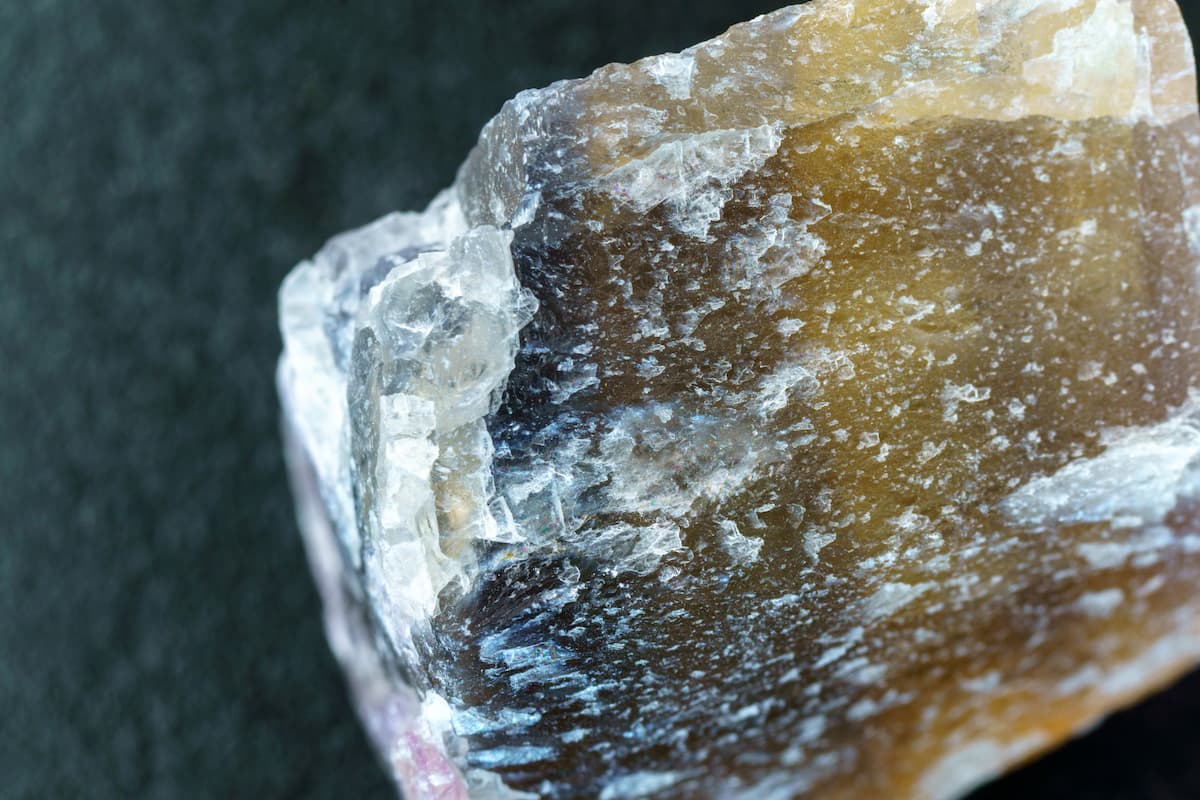
Fluoride is an essential mineral for the proper functioning of the body. How does it work and is it harmful? Check!
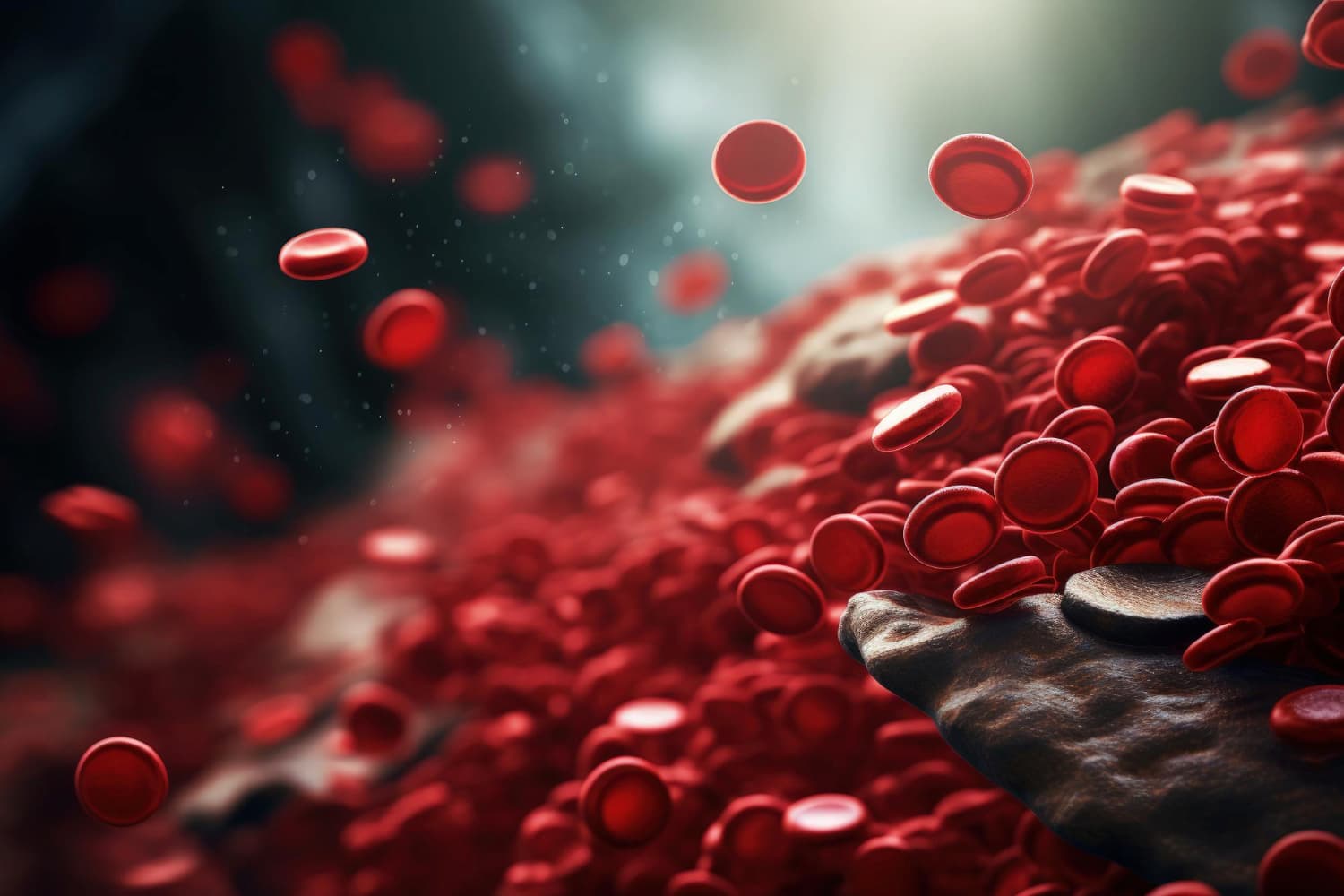
Iron deficiency is a dangerous condition leading to serious neurological and skin symptoms.
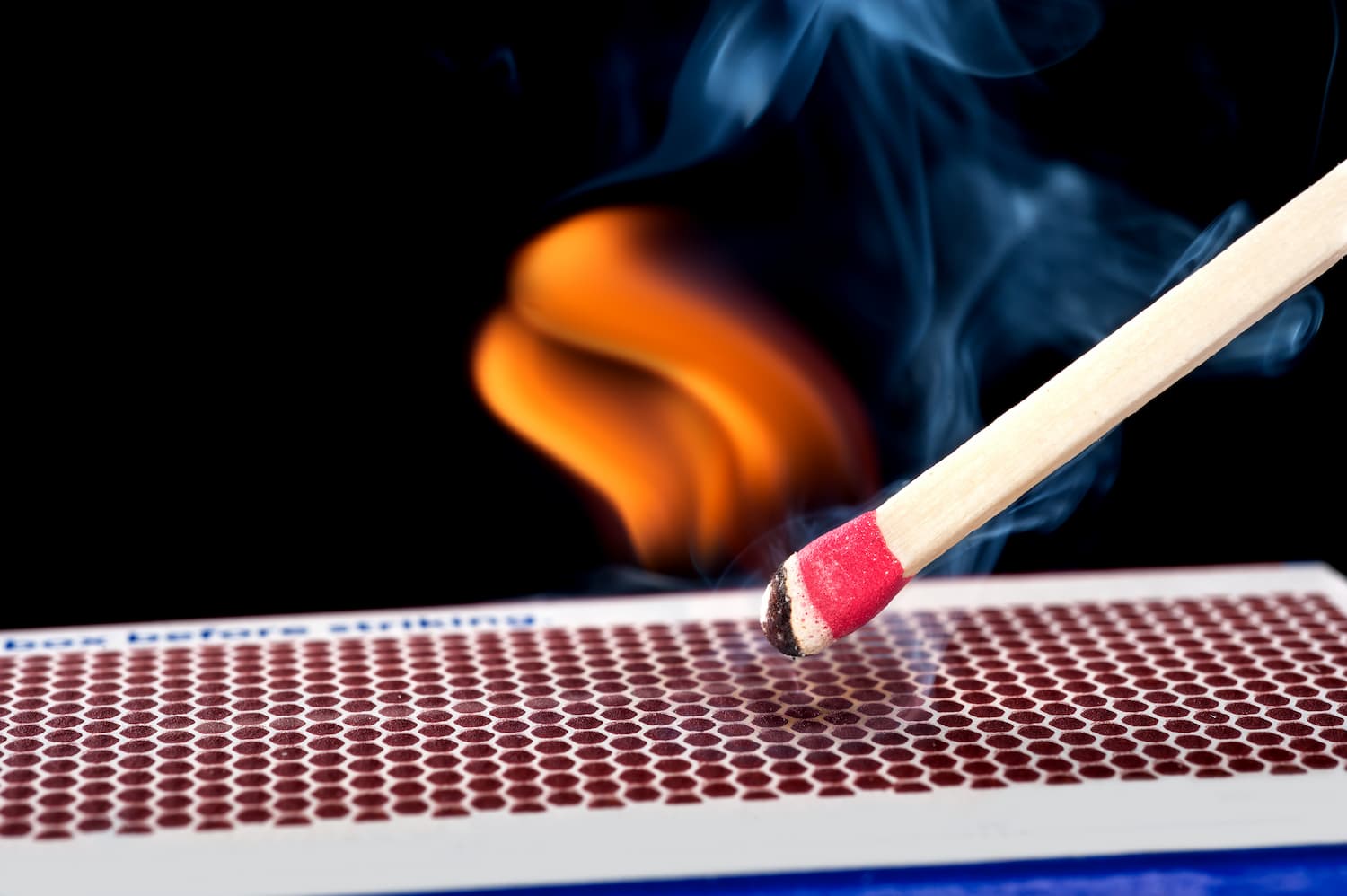
Phosphorus is a mineral element that supports bone health, nervous system function and also energy metabolism.
